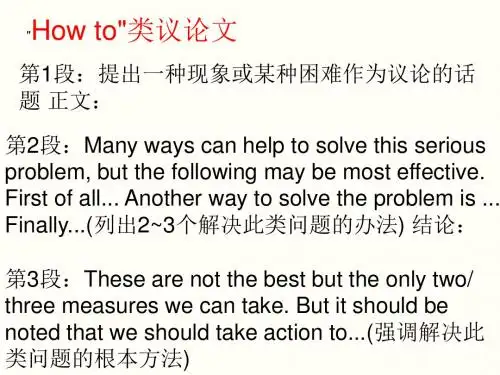英语议论文写作课件
- 格式:ppt
- 大小:727.50 KB
- 文档页数:21
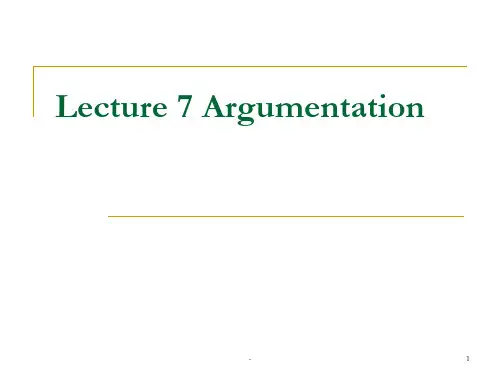
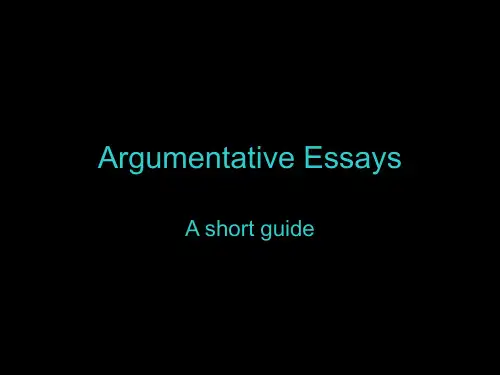
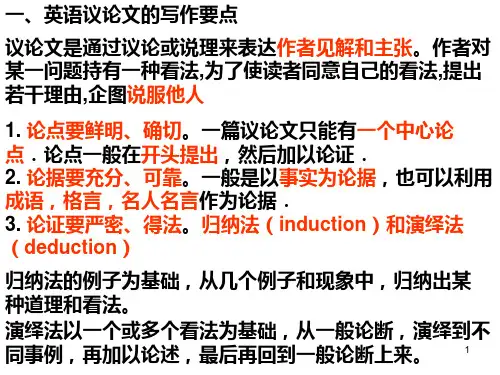
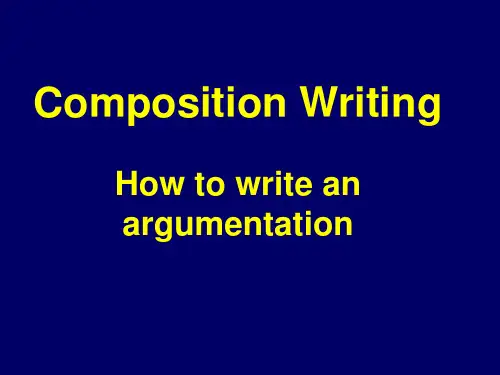




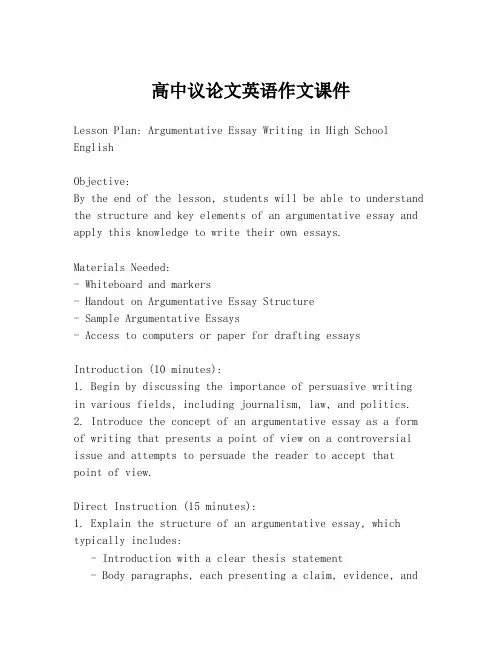
高中议论文英语作文课件Lesson Plan: Argumentative Essay Writing in High School EnglishObjective:By the end of the lesson, students will be able to understand the structure and key elements of an argumentative essay and apply this knowledge to write their own essays.Materials Needed:- Whiteboard and markers- Handout on Argumentative Essay Structure- Sample Argumentative Essays- Access to computers or paper for drafting essaysIntroduction (10 minutes):1. Begin by discussing the importance of persuasive writing in various fields, including journalism, law, and politics.2. Introduce the concept of an argumentative essay as a form of writing that presents a point of view on a controversial issue and attempts to persuade the reader to accept that point of view.Direct Instruction (15 minutes):1. Explain the structure of an argumentative essay, which typically includes:- Introduction with a clear thesis statement- Body paragraphs, each presenting a claim, evidence, andanalysis- Counterarguments with refutations- Conclusion that summarizes the main points and restates the thesis2. Discuss the key elements of an argumentative essay:- Claim: A clear and debatable assertion- Evidence: Facts, statistics, quotes, or examples that support the claim- Analysis: Explanation of how the evidence supports the claim- Counterargument: Acknowledgment of opposing viewpoints with refutationGuided Practice (20 minutes):1. Distribute a handout with the structure of an argumentative essay and review it as a class.2. Provide a sample argumentative essay and analyze it together, highlighting how it follows the structure and includes the key elements.Independent Practice (30 minutes):1. Assign a controversial topic for students to write an argumentative essay on.2. Have students draft their essays using the structure and elements discussed in class.3. Encourage students to use evidence from credible sources and to consider counterarguments.Closure (10 minutes):1. Review the key points of the lesson and ask students toshare one thing they learned.2. Collect drafts for feedback and suggest areas for improvement.Assessment:- Formative: Participation in class discussions and analysis of the sample essay.- Summative: Assessment of the drafted argumentative essayfor structure, clarity, and use of evidence.Extensions:- Encourage advanced students to research their topics more deeply and to use more sophisticated rhetorical strategies in their essays.- For students who need additional support, provide one-on-one feedback and guidance on their drafts.Differentiation:- Provide additional examples and support for students who may need more guidance.- Allow students to choose their own controversial topics to increase engagement and interest.Homework:- Complete the draft of their argumentative essay for peer review and further refinement in the next class.。

